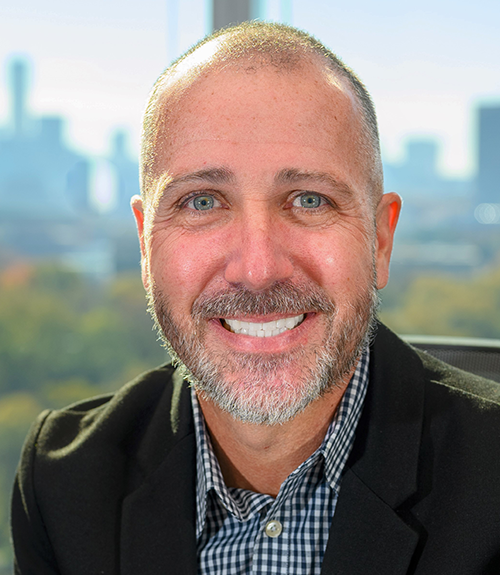In this interview, we take some time with Marc Monday, VP Partner Ecosystem, Sage and find out about life both inside and outside the office.

What would you describe as your most memorable achievement?
I’ve been fortunate to witness and actively participate in several pivotal technological shifts throughout my career, notably at companies like Microsoft, VMware, SAP and Cisco. However, the most significant and rewarding change for me has been the unprecedented pace of the cloud’s evolution. In the early stages, during the era of hosting and BPOS (business process online suite, the precursor to Office365), the development speed was sluggish. Convincing customers, partners, and sales teams to transition from on-premises solutions was a considerable challenge and the business models were often ahead of the available technological capabilities.
Then the cloud transformed into an omnipresent and indispensable force practically overnight — a truly transformative moment in my tech career.
It’s a testament to the adage that things may progress slowly until they suddenly accelerate. This shift to a ubiquitous cloud environment not only marked a significant turning point in the industry but also stands as a significant achievement in my career – navigating and contributing to the transformation of the cloud technology landscape.
What first made you think of a career in technology?
I am a child raised on arcade video games: Galaga, Tetris, Asteroids, Pac-Man – that’s my era. The magic of video games really opened my mind to the idea that technology can do anything. It’s the power of technology to transform business models that absolutely inspires me.
What style of management philosophy do you employ with your current position?
For me it’s all about TEAM – Trust, Empathy, Action and Measurement. I truly value the differences and unique capabilities of individuals and I work to meet the team where they are, using this construct. Trust and Empathy, for me, must come first, as true table stakes. Then we dive into the key actions and how to measure what matters.
What do you think has emerged as the technology trend of 2023 and why?
AI has been the definitive trend for 2023. But underlying all the buzz is a need to improve and automate legacy processes that are in need of simplification. We have been layering and layering technologies now for 30 years and the hope is that automation will begin to improve many inefficient and time-consuming core processes.
What do you currently identify as the major areas of investment in your industry?
Automation and simplification are key right now. Everyone needs to do more with less. People talent is still hard to find post-pandemic and the overall pace of change continues to accelerate faster than teams can keep up.
How do you deal with stress and unwind outside of the office?
My wife jokes that I work to buy bicycles, so cycling for sure! I also love snowboarding and hiking and have recently been encouraged by my sons to take up trail-running and light weightlifting.
If you could go back and change one career decision, what would it be?
Brene Brown has this phrase I really like: ‘Stay awkward, brave and kind’ – I wish I would have learned this sooner in my career. I spent a lot of time trying to fit in, emulate others and conform to a specific look or approach to things. Only later did I realise that our uniqueness is what makes us who we are.
What are the region-specific challenges when implementing new technologies in Europe?
Three big areas we always need to be cognisant of:
Language and local laws: Europe is a continent with diverse languages and legal frameworks. Adapting new technologies requires a careful consideration of language variations and compliance with local laws and regulations. Ensuring that technology solutions are not only linguistically appropriate but also legally compliant across different European countries is crucial for successful implementation.
Industries and verticals: Europe hosts a wide array of industries and verticals with varying needs and practices. Implementing new technologies must account for industry-specific requirements, ensuring that solutions are tailored to meet the unique demands of different sectors. Understanding the nuances of each industry is essential to the successful integration of technology across diverse European markets.
Sustainability and carbon impact: Sustainability is a paramount concern in Europe, with the region leading the way in adopting environmentally friendly practices. Regulations governing carbon impacts are stringent, necessitating technology implementations to align with sustainability goals. As more small and medium-sized enterprises (SMBs) in Europe strive to understand and reduce their carbon footprint, the integration of carbon accounting solutions becomes critical for businesses aiming to achieve net zero targets. Balancing technological advancements with sustainable practices is integral to success in the European market.
What changes to your job role have you seen in the last year and how do you see these developing in the next 12 months?
Everything is faster now. The pace of change continues to accelerate and customers expect more.
We must keep pace with the industry and ensure our customers, partners and colleagues are met ‘where they are’ with an entity and technology they can trust to break down barriers and enable them to thrive.
What advice would you offer somebody aspiring to obtain C-level position in your industry?
Listen, go slow to go fast, make mistakes and learn from those mistakes and always act with the highest integrity.
Click below to share this article

